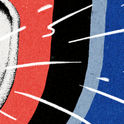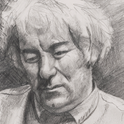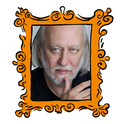Polity, £16.99
The immediate aftermath of the Islamic State attacks in Paris on 13th November felt very different from the days that followed the massacre in January at the offices of the satirical magazine Charlie Hebdo. This time around there was no mass mobilisation of the population—the declaration of a state of emergency meant there would be no equivalent of 11th January, when millions took to the streets across France to affirm that they, too, “were Charlie.” And the day after the latest attacks, former President Nicolas Sarkozy ignored the niceties of the “republican” consensus that had taken hold earlier in the year and attacked the government of François Hollande for alleged security failures.
One suspects that the historian and sociologist Emmanuel Todd would have welcomed this rapid reassertion of political business as usual. In his view, France underwent a kind of emotional spasm in January. In the name of the republican values of liberty, equality and fraternity, politicians, journalists and intellectuals argued not only that French citizens had a right to mock the religion of Islam, as the cartoonists of Charlie Hebdo had done, but a duty to do so.
Todd argues that it was not “la” France that gathered in huge numbers on 11th January, but “une” France—specifically, the France of the Catholic periphery and the upper-middle class—and he claims to have the sociological data to prove it. The sociology isn’t always convincing, particularly where the overlap between religion and class is concerned, but the details are less important than his broad message—which is that politics in France, as they have been for decades in the United States, are now a way of fighting “culture wars” by other means.
Purchase the book here on Amazon
The immediate aftermath of the Islamic State attacks in Paris on 13th November felt very different from the days that followed the massacre in January at the offices of the satirical magazine Charlie Hebdo. This time around there was no mass mobilisation of the population—the declaration of a state of emergency meant there would be no equivalent of 11th January, when millions took to the streets across France to affirm that they, too, “were Charlie.” And the day after the latest attacks, former President Nicolas Sarkozy ignored the niceties of the “republican” consensus that had taken hold earlier in the year and attacked the government of François Hollande for alleged security failures.
One suspects that the historian and sociologist Emmanuel Todd would have welcomed this rapid reassertion of political business as usual. In his view, France underwent a kind of emotional spasm in January. In the name of the republican values of liberty, equality and fraternity, politicians, journalists and intellectuals argued not only that French citizens had a right to mock the religion of Islam, as the cartoonists of Charlie Hebdo had done, but a duty to do so.
Todd argues that it was not “la” France that gathered in huge numbers on 11th January, but “une” France—specifically, the France of the Catholic periphery and the upper-middle class—and he claims to have the sociological data to prove it. The sociology isn’t always convincing, particularly where the overlap between religion and class is concerned, but the details are less important than his broad message—which is that politics in France, as they have been for decades in the United States, are now a way of fighting “culture wars” by other means.
Purchase the book here on Amazon












